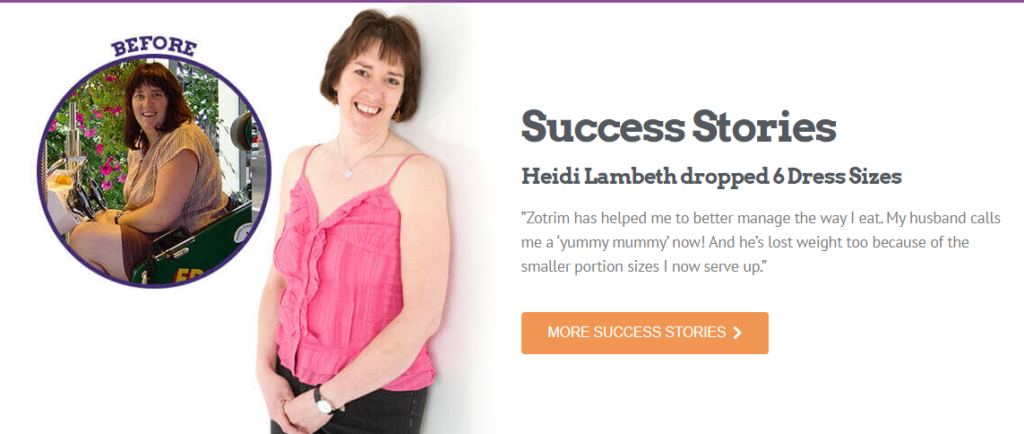
Table of Contents
Introduction
Are you trying to lose the annoying 10 pounds that you gained during your Summer vacation, or wondering how you can avoid packing them on during vacation?
Reaching your weight loss goals can be a big challenge, no matter how much weight you wish to lose. However, if you take it step by step and make a few small changes to your diet and lifestyle, weight loss can be much easier to manage.
With a few small changes to your daily routine, it’s actually very possible to safely lose up to 10 pounds in just one month and reach your weight loss goals quickly and easily, even if you hate exercising and refuse to hit the gym.
Here are some legitimate ways to lose 10 pounds without hating your life!
Get Enough Sleep Every Night
Setting up and adhering to a regular sleep schedule can be another vital factor for successful weight loss, especially if you want to lose 10 pounds without exercising.
According to one small study, depriving nine men for one night led to a significant increase in hunger and ghrelin levels, the hormone that stimulates appetite.
On the other hand, a study of 245 women found that improving sleep quality and getting a minimum of seven hours of sleep each night increased the likelihood of successful weight loss by 33%.
Try getting a minimum of 7 to 8 hours of sleep each night, set up a regular sleep schedule, and minimize bedtime distractions to optimize your sleep cycle and achieve your weight loss goals.
Practice Intermittent Fasting
Intermittent fasting involves cycling between periods of eating and fasting, with fasting generally lasting 16 to 24 hours.
It can potentially reduce the amount of food you eat by limiting the timeframe in which the food is consumed, which may improve weight loss.
Some study shows that intermittent fasting can be a useful weight loss tool and as effective as calorie reduction.
It can also increase the level of human growth hormone (HGH), an important hormone that has been shown to increase fat loss and maintain lean body mass.
There are many different ways to fast intermittently. Many usually plan to choose an 8-10 hour window to limit daily food intake.
Find a method that works with your daily routine.

Increase Your Water Intake
It’s perhaps one of the biggest cliches in the book, but drinking water is one of the best things you can do for your body.
Thirst is, many times, mistaken for hunger. By drinking more water, it’ll enable us to feel unnecessarily hungry at times, and may slo prevent us from overeating.
In addition, it may be a good idea to add a bit of salt to your water. When it comes to water, salt is not always the enemy.
“Water needs electrolytes like sodium, potassium, and chloride to be optimally absorbed,” says Jenny Westerkamp, R.D. from Chicago, which explains why they are added to many famous sports drinks.
It is recommended that you add a pinch of Celtic sea salt or real salt (unrefined and unbleached) to your water before drinking. “The electrolytes in the salt push the water into the cells where it needs to be, instead of letting the water out, so you go to the bathroom every second minute.”
You’ll also notice a surge in energy after staying hydrated, which can obviously help in many areas of your life outside of weight loss.
Get Smart About Nutrition
Crying sugar tears because you ate a donut that is not on your list of approved foods is of no use to you. You ate a donut. No big deal. Go ahead and enjoy your donut.
Here’s why: Do you remember when you were a kid, and your mother banned soda from your life forever, which led you to serious root beer binges whenever you went over to your friend’s house?
The same rules apply here. If you completely remove all your favorite foods, it may do more harm than good in the long run. If you completely cut yourself off from all your favorite snacks, it could lead to a binging session of sugary and salty foods once you’ve reached a breaking point.
Instead, you should consider food as a way to take care of yourself: eat what makes you feel good and forget about it as a means of losing weight (although a solid side effect of healthy eating: weight loss).
Now, this doesn’t mean you should eat whatever you want whenever you want. There still needs to be a moderate level of discipline and limitation in regards to your diet. Use common sense, and remember that eating healthy doesn’t have to mean eating in a boring manner!
Be a Straight Shooter
A study found that people consumed 60 percent more alcohol, sugary drinks, and fruit juices when the glass they drank from was more curvy than a simple glass.
Researchers speculate that people drink curvy glasses faster because it’s harder to tell when you’re halfway there, so they end up drinking more.
To space your sips and feel satisfied faster, pour a drink (alcoholic or non-alcoholic) in a straight glass. If you end up drinking 60 percent less than normal, you will save around 67 calories at breakfast, if an 8-ounce glass of orange juice is a staple food in the morning.

Dim the Lights
Regardless of what you thought of as a child, darkness is not so frightening. A new Cornell University study says the secret to eating less – and feeling happier with what you eat – could be as simple as turning off the lights.
Researchers found that people who ate a meal in soft, warm light conditions consumed 175 calories less than those who chewed in bright places.
Study participants who dined under atmospheric lighting ate 18% less food on their plates and rated their food as “more pleasant” than in bright light.
Scientists believe this is because the stiff fluorescent lights common in fast food restaurants can create a psychological need to run through meals and eat more. So, light a candle or two at dinner, and you may be less thrilled to devour your food!
Think Thin
Do you think you are overweight? Think again. New research suggests that the way you think about food and your waistline can determine your success with a healthy diet.
You will find that simply believing you are “chubby” or “very fat,” may reduce your chances of reaching your target weight, even if you are physically active.
According to Susan Albers, Cleveland clinic psychologist and author of Eating Mindfully and 50 Ways to Calm Down Without Eating, “Your mindset is incredibly important for giving up your weight or staying on track”.
“So, if you believe you are not overweight regardless of your actual weight, you will act to get what you already believe in.”
Eat Healthy Fats
When trying to lose weight, the last thing you want to do is eat fat, right?. Well, there’s truth to that, but it’s also vital to make sure you include the right types of fat in your diet.
Adding healthy fats to your diet changes the game. Research has shown that eating good fats like avocado every day – even if you throw some in your salad for lunch – can make you so full and satisfied that you won’t grab unhealthy and sugary snacks later on.
Move More Throughout the Day
Even if you don’t have a lot of time and can’t start a full workout, adding small amounts of activity throughout your day can reduce body weight.
Non-exercise Activity Thermogenesis (NEAT) refers to the calories your body burns during the day by regularly performing non-sports activities such as typing, gardening, walking, or even fidgeting.
NEAT is estimated to represent up to 50% of the total number of calories you burn each day, although this number can vary significantly depending on your activity level
By making some changes to your daily schedule, you can increase the number of calories you burn to accelerate weight loss with minimal effort.
Parking at the extreme back of a parking lot, using the stairs instead of the elevator, walking during lunch, and stretching every 30 minutes are some easy activities to add to your daily routine.
Fill up on Veggies
Vegetables are incredibly nutritious and contain plenty of vitamins, minerals, antioxidants, and fiber, without adding many calories to your diet!
Many studies indicate that increased fiber intake from fiber-rich foods, such as vegetables, is associated with a reduction in calorie intake and body weight.
To easily increase your serving of vegetables, add one or two servings to side dishes, salads, sandwiches, and snacks.

Eat More Slowly
Slowing down and concentrating on enjoying food while listening to your body is an effective strategy to reduce your intake and improve your feeling of fullness.
A study of 30 women reported that eating slowly reduced calorie intake by an average of 10%, increased water consumption, and caused a greater feeling of satiety than eating fast.
If you take small bites, drink plenty of water with meals, and reduce external distractions, you can eat more slowly to increase weight loss.
Add Fiber to Your Diet
Dietary fibers are nutrients that move through your undigested body, stabilize blood sugar, slow gastric emptying, and make you feel full longer.
Numerous studies show that fiber has a strong influence on weight loss.
Aim for at least 25 to 38 grams of fiber a day from foods like fruits, vegetables, legumes, and whole grains to optimize health and increase weight loss
Conclusion
While losing 10 pounds seems like a big goal, it is quite possible to make a few simple adjustments to your lifestyle and diet.
Take one step at a time and make a few small changes each week to lose weight safely and sustainably and keep it off in the long term.
With hard work and a little patience, you can achieve your weight loss goals while improving your overall health.

References:
https://www.ncbi.nlm.nih.gov/pubmed/18564298
https://www.ncbi.nlm.nih.gov/pubmed/12468415
https://www.ncbi.nlm.nih.gov/pubmed/22402738/
https://www.ncbi.nlm.nih.gov/pubmed/24993615
http://onlinelibrary.wiley.com/doi/10.1002/oby.21167/abstract%20
